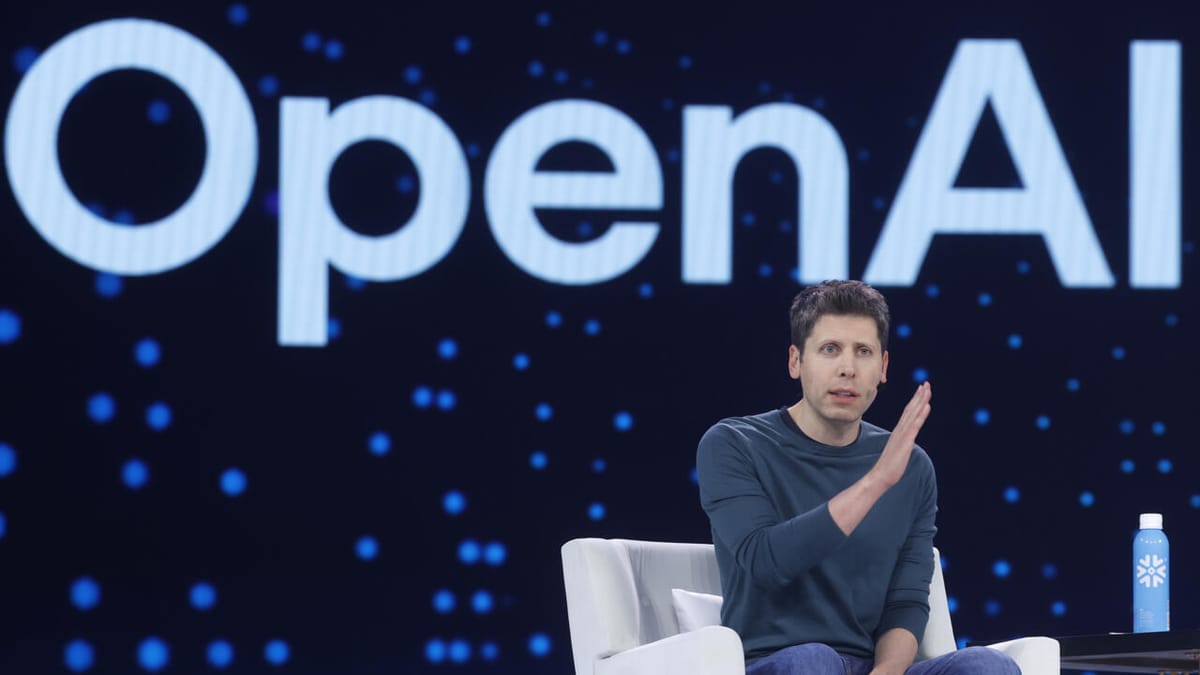OpenAI Secures $200 Million U.S. Defense Contract to Bolster AI Capabilities
Meta Description: OpenAI lands a $200 million U.S. Defense Department contract to develop AI tools for military use, advancing national security but raising new questions on ethics and oversight.

The landmark agreement marks a major step in integrating cutting-edge artificial intelligence technology into U.S. military operations.
OpenAI, the leading artificial intelligence research firm, has won a $200 million contract with the U.S. Department of Defense to develop advanced AI tools and infrastructure for military applications. The multi-year deal, announced Monday, is expected to enhance the military’s capabilities in data analysis, decision-making, and security as AI becomes increasingly central to national defense strategies.
OpenAI’s Breakthrough Agreement With the Pentagon
The Department of Defense’s contract with OpenAI, U.S. government investments in artificial intelligence development to date. The deal will see OpenAI provide technical expertise, deploy secure large language models, and support infrastructure upgrades for the Pentagon's rapidly growing set of AI initiatives.
“This partnership will allow us to harness state-of-the-art AI safely and responsibly to maintain the security and technological edge of U.S. defense,” said Dr. Barbara Thomas, spokesperson for the Department of Defense. “Working with OpenAI accelerates our ability to analyze complex data and respond to emerging threats."
Enhancing Military Decision-Making With Secure Artificial Intelligence
Under the terms of the agreement, OpenAI will assist the Defense Department in:
Developing robust, secure AI models tailored to government needs,
Modernizing data infrastructure to improve analysis speed and accuracy,
Ensuring compliance with federal regulations and military safety standards.
A Pentagon official confirmed, “These language models will not only sift through vast volumes of intelligence but also identify patterns and flag potential threats faster than any existing system.”
OpenAI CEO Sam Altman commented, “We’re committed to ensuring that the transformative benefits of AI can securely serve the public interest, including through responsible partnerships with government agencies that prioritize safety and oversight.”
Addressing Security, Ethics, and Public Concerns
AI’s integration into military operations has drawn scrutiny from watchdogs, lawmakers, and ethicists. Concerns persist over data privacy, unintended consequences, and the potential for misuse.
Kate Starbird, an authority on technology policy at the University of Washington, offered a note of caution: “As AI permeates defense and national security, robust oversight and transparency are crucial. The Pentagon and OpenAI must detail safeguards and maintain accountability to prevent unintended harm.”
The Department of Defense emphasized its commitment to ethical guidelines for AI, referencing the Defense Innovation Board’s principles on trustworthy and accountable systems.
Calls for Greater Oversight and Transparency
Civil liberties groups, including the Electronic Frontier Foundation (EFF), have previously raised issues about the potential risks of military AI, including surveillance and data misuse.
“We urge transparency in how these systems are trained, who oversees deployment, and what safeguards exist for privacy,” EFF researcher Sarah Mitchell said in a statement. “Public accountability must be built into every stage.”
Broader Trends: AI’s Increasing Role in Defense Strategy
OpenAI’s contract comes as global militaries race to integrate artificial intelligence into critical operations. The U.S. is investing heavily to stay ahead of rivals like China and Russia, which are also pouring resources into AI-driven warfare and intelligence.
According to a recent report by the Center for Security and Emerging Technology, over 70% of national security agencies worldwide have active AI modernization programs. The Pentagon’s overall AI budget for fiscal year 2025 tops $3 billion.
Industry Response and Innovation Race
OpenAI’s entrance into defense contracting signals a shift in how Silicon Valley companies partner with government. Google and Microsoft have pursued smaller military AI projects in recent years, but OpenAI’s $200 million deal is unprecedented in scale.
Scott Thiel, AI industry analyst with Gartner, commented, “This is a watershed moment—AI research and deployment are no longer siloed in academia or big tech, but integral to government infrastructure. Expect others to follow.”
What Comes Next: Implementation and Impact
The Pentagon indicated the first phase will focus on upgrading data infrastructure and piloting AI models for intelligence analysis and logistics management. Over the coming years, the scope may expand to include battlefield communications, cybersecurity, and humanitarian missions.
OpenAI and the Defense Department have pledged to publish non-classified research findings, and to work with congressional overseers to ensure responsible implementation.
OpenAI’s $200 million contract with the Pentagon underscores artificial intelligence’s growing importance to national defense. As the U.S. military rolls out advanced AI infrastructure, experts say transparency, oversight, and robust safety protocols are essential to ensure technology is deployed responsibly. While this agreement could set new standards for government-industry collaboration, the true impact will hinge on how stakeholders address concerns about security, ethics, and public trust.
Sources Used:
Reuters: https://www.reuters.com/world/us/openai-wins-200-million-us-defense-contract-2025-06-16/
Center for Security and Emerging Technology reports
Statements from the Department of Defense, OpenAI, and the Electronic Frontier Foundation
Gartner research, quoted experts in emerging technology policy



